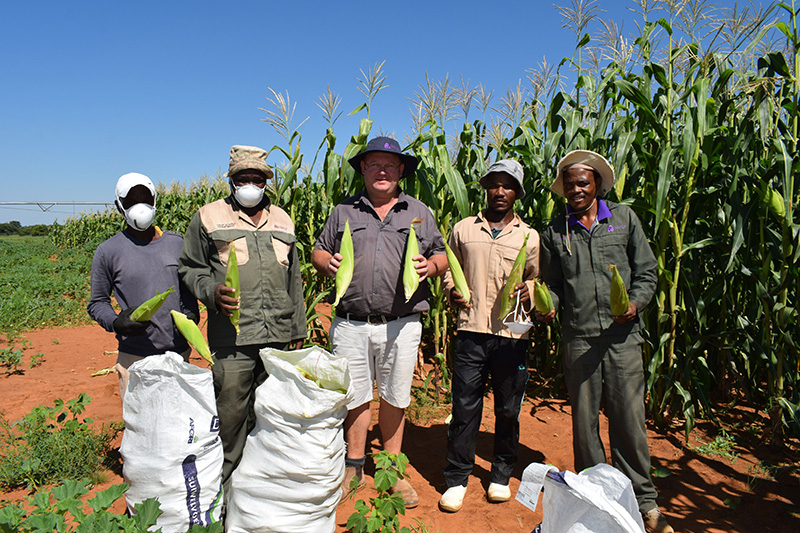By Gofaone Motsamai and Oscar Mosiane
For students and staff who are passionate about farming and agriculture, the ideal place to learn, do research and reap fresh produce is the North-West University’s (NWU’s) Molelwane Agriculture Farm.
Located on the Barolong-Boo Rratshidi land just outside the Mahikeng Campus, the farm is currently harvesting watermelons, sweet melons, butternut and maize. These products are sold to the local community, as well as NWU students and staff, at affordable prices as part of the farm's third-stream income generation strategy.
The initiative not only supports the farm’s financial sustainability but also promotes access to fresh, locally grown produce, says Hannes Lombard, manager of the farm. “We are aiming to expand and produce more products.”
Run like a commercial agribusiness
The farm’s operations mirror the structure and practices of a commercial agricultural enterprise, providing valuable experiential learning opportunities for students.
“We run the farm like a normal, functioning commercial farm,” says Hannes Lombard, farm manager. “The goal is to provide undergraduate students with practical exposure so they can see how things work and gain hands-on experience. Lecturers and academic technicians bring their students to the farm and organise practical sessions based on ongoing farm activities.”
This hands-on approach enables students to better understand agricultural production processes, including planting, harvesting and farm management practices. Such exposure bridges the gap between theoretical knowledge and practical application, enhancing the academic experience.
Local jobs created
Beyond its educational role, the farm contributes meaningfully to local job creation.
“We have permanent workers, but during planting and harvesting seasons, when the workload increases, we hire temporary workers. This is part of the university farm’s commitment to benefiting the community through job creation,” says Hannes. “At this time, we have around 10 to 12 temporary workers.”
Temporary employment opportunities help uplift local community members, providing essential income and skills development.
In addition to the current harvest, the farm generates income from a variety of agricultural products. “The highest income generator is eggs, followed by products like meat, milk and vegetables,” he says.
The farm’s diversified production ensures financial stability and allows it to meet multiple market demands. The latest addition is piggery with state-of-the-art equipment to assist students doing research. Once operational, it is expected to be a high-income generator for the farm.

Hannes Lombard, manager at the Molelwane farm and farm employees show off some of the harvested fresh produce.
